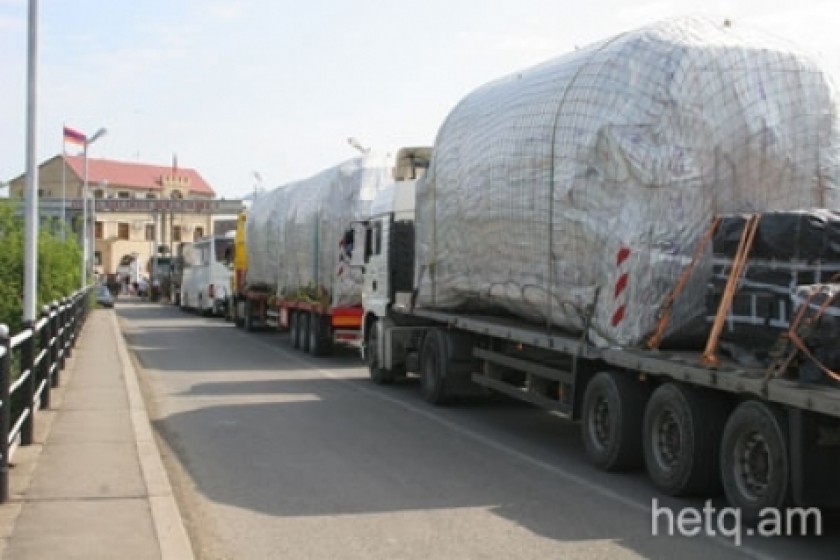
Ministry Lifts Ban on Turkish/Azerbaijani Food Imports: Winners and Losers
On June 7 of this year, Armenia’s Minister of Agriculture Sergo Karapetyan lifted a ban on the importation of food products from Turkey and Azerbaijan that had been decreed in 2009 by his predecessor, Gersim Alaverdyan.
That ban, on meat, fruits and vegetables, was ostensibly for health and safety reasons.
Surprisingly, the Ministry never publicized the lifting on the ban as prescribed by law.
When Hetq wrote to the Ministry regarding this omission, they responded by citing Article 61 of the Law of Individual Legal Acts in an attempt to justify their concealing the lifting of the ban.
As the Ministry interpreted the law, they are only obliged to inform those agencies and officials, or citizens, affected by the law and that it is up to those agencies/officials to publicize the new decision to a wider audience; i.e. the public.
The Ministry even failed to publish news of the lifting of the ban in its own website. In fact, it was only on September 20, after the press got hold of the story, that the Ministry saw fit to publish an explanation as to why the 2009 temporary ban had been lifted.
In its explanation of September 20, the Ministry argued that the 2009 ban proved ineffective and that even more Turkish and Azerbaijani products were illegally entering the country. The Ministry also noted that Armenia and Turkey are members of the World Trade Organization and that no member state can unilaterally place trade restrictions on another.
In essence, the Ministry said that the 2009 ban not only didn’t have any teeth, because it was merely a ministerial decree, but that it was illegal as well since it restricted the rights and freedoms enshrined in Armenia’s Constitution.
The Ministry also argues that only a government sponsored law could have effectively placed a restriction on certain imports. So why didn’t the Ministry, in collaboration with the government, draft such a bill and introduce it to the National Assembly for passage?
The question naturally arises, so why did it take the Ministry four years to recognize the errors of its way.
The Ministry now claims that absent the ban its Food and Safety Inspectorate (FSI) has the resources to effectively test imported food and food products according to the highest safe and health standards.
But the Ministry itself has confessed that even under the ban the FSI failed to halt the importation of banned food products from Turkey and Azerbaijan. The Ministry fails to state what has changed within the FSI to make it an effective watchdog agency today.
This is an issue of national security.
We have Turkey and Azerbaijan, two countries with which Armenia has, to put it mildly, less than amicable relations, whose produce can theoretically be imported into Armenia.
Other than the FSI, an agency already proven to be ineffective food safety watchdog, who can assure the Armenian public than imports from these two countries are indeed fit for consumption?
Put more correctly, what if, by accident or design, such produce poses a dire safety risk to Armenian consumers?
The Armenian government appears unconcerned with such matters.
On the contrary, by lifting the ban, Agriculture Minister Karapetyan has lifted any remaining veil of pretense as to whose interests come first – the consumer or the commercial oligarchs.
That flashing yellow light, which many didn’t heed to begin with, is now green.
 Videos
Videos Photos
Photos
Write a comment